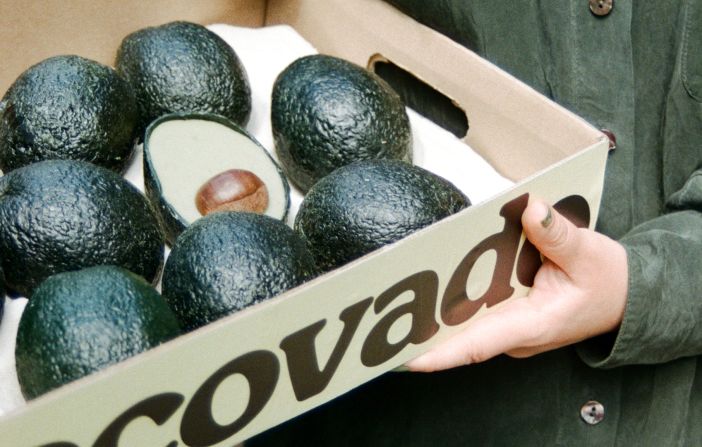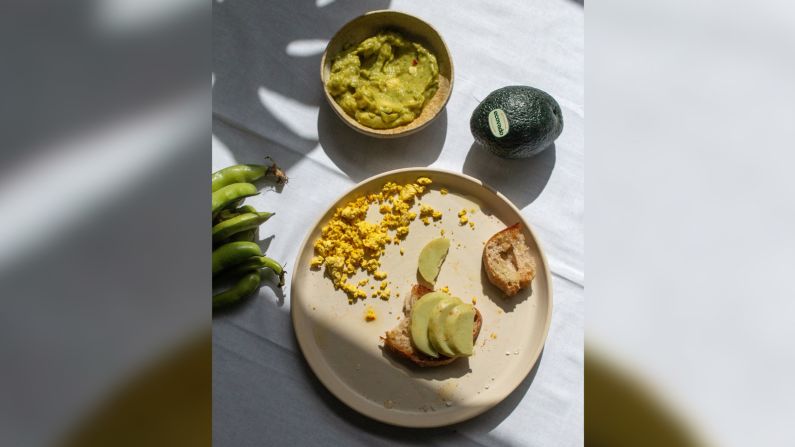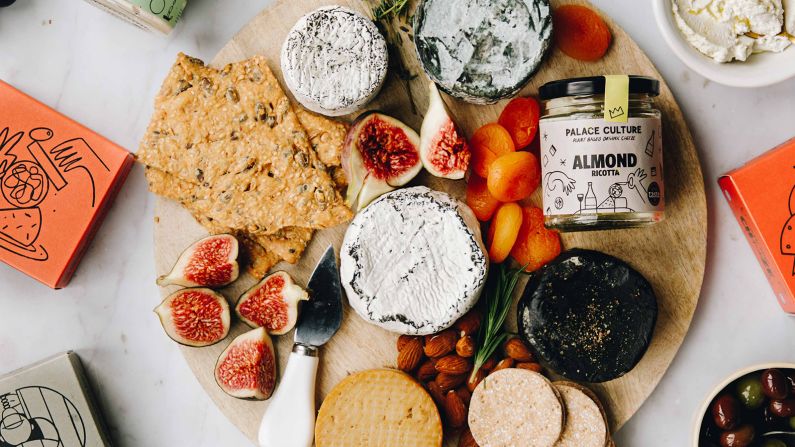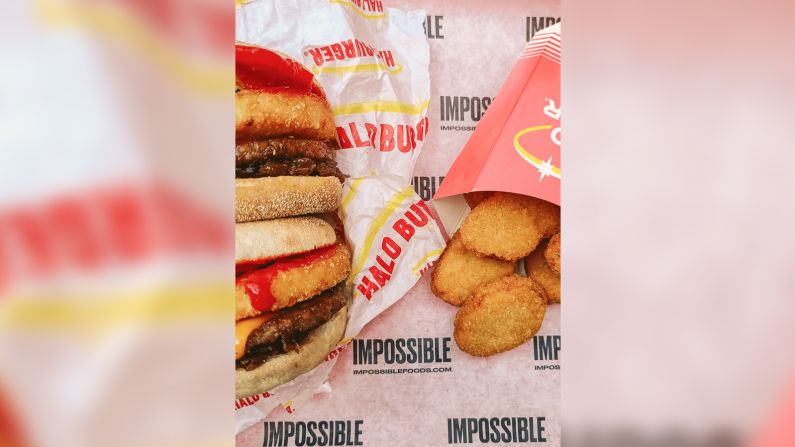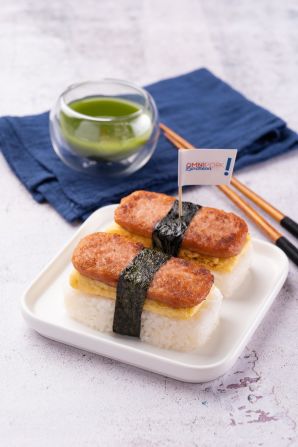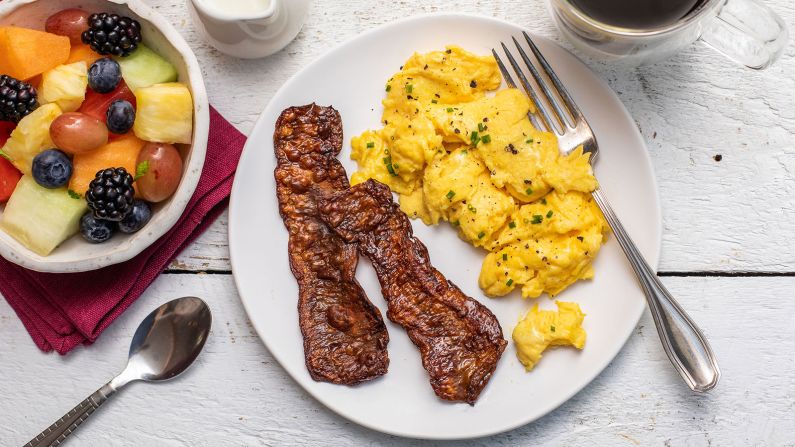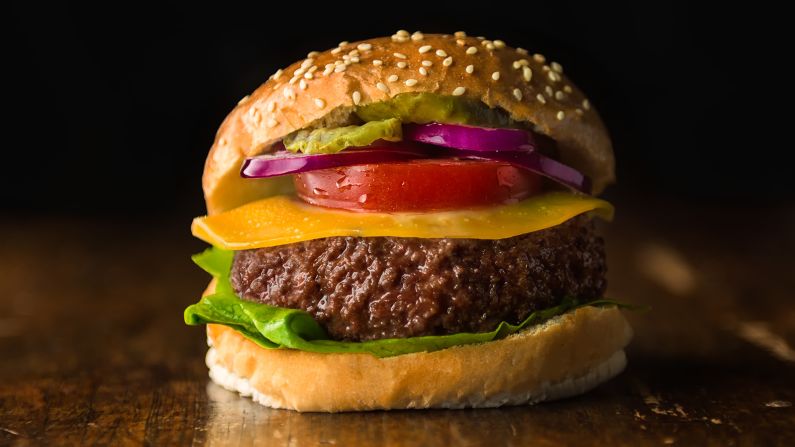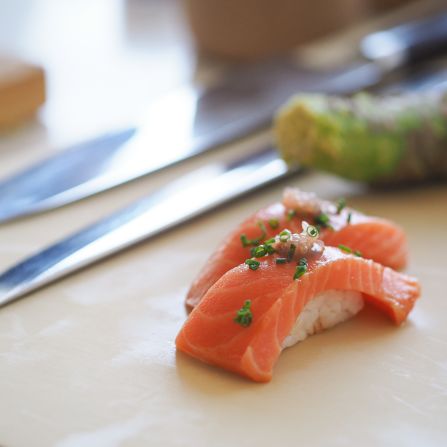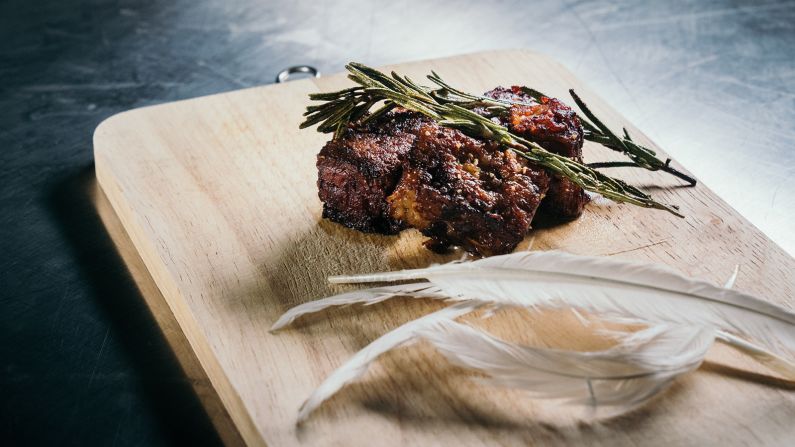Often referred to as “green gold,” the avocado has soared in popularity in recent years. Eleven billion pounds of the fruit are consumed annually around the world according to the World Economic Forum.
However, our love of avocados comes at a significant cost to the environment: approximately 2,000 liters of water are used to grow just one kilogram of avocados, while forests are cleared to make space for avocado trees.
That’s why London-based researcher and designer Arina Shokouhi decided to develop an eco-friendly avocado alternative. Called the “Ecovado” she hopes it will inspire consumers to think twice before slicing into the fruit for breakfast toast or whipping up the next batch of guacamole.
“It can be actually a positive solution and we should just embrace it because we know that we can’t carry on living like this,” says Shokouhi.
A “green” design
At first glance, the Ecovado is indistinguishable from the real thing. Made with beeswax and natural food coloring containing spinach and charcoal powders, the Ecovado skin mimics avocado peel. The meat of the alternative fruit is made with four simple ingredients: broad beans as the base, apple for freshness, cold-pressed rapeseed oil for creaminess, and a sprinkle of hazelnut. A whole chestnut or hazelnut is used for the pit.
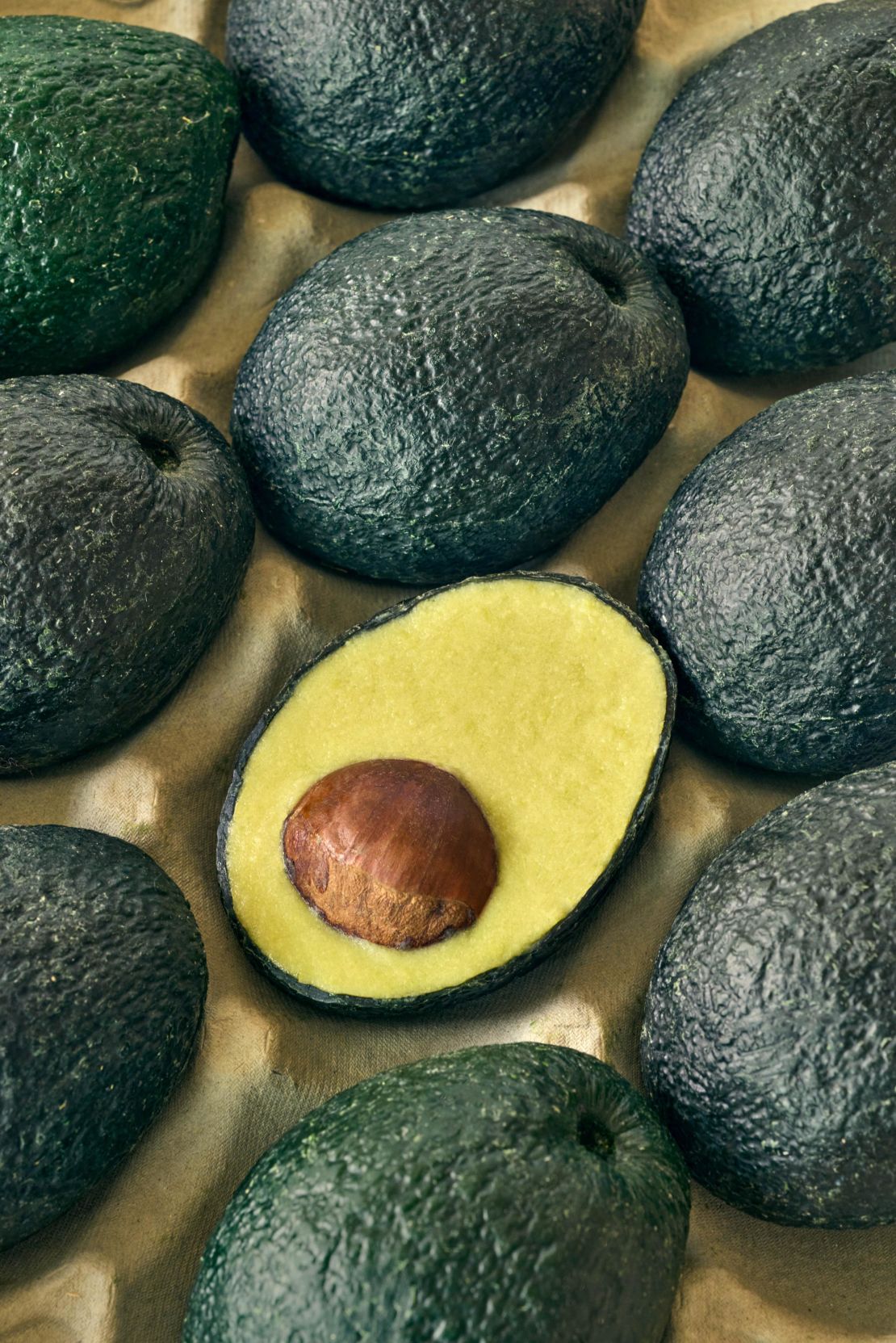
The Ecovado was developed as part of Shokouhi’s Material Futures master’s degree at Central Saint Martins art school. Having come up with the concept at the end of her first year, she forged a collaboration with University of Nottingham food scientist, Jack Wallman, who had studied the molecular properties of avocados to understand what gives them their creamy texture. It took eight months to perfect the recipe, says Shokouhi.
Creating a sustainable and appealing avocado substitute was a challenge.
“(The) choice of ingredients was very limited to begin with because I want it to be 100% local. That was my first priority,” Shokouhi says, adding that she calls this the “British” version.
Shokohui wanted the Evocado to offer the health and environmental benefits that come from eating locally sourced food.
Garden peas and broccoli were early recipe contenders, Shokouhi says, but had low local production. Making up the base of the Ecovado, broad beans, also known as fava beans, are relatively easy to grow, with around 740,000 metric tons harvested in the UK each year.
However, broad beans are molecularly different to avocados and masking their “bitter smell” was difficult, she says. Ultimately Wallman and his team found ways to balance out the ingredients and create a convincing avocado alternative.
Avocado cutlery
While sticking to local ingredients and highlighting plant-based diets are key to reducing carbon emissions, sustainable food production also intersects with complex issues such as land use, ethical sourcing and labor rights, says Dr. Wayne Martindale, associate professor of food insights and sustainability at the UK’s University of Lincoln.
Developments in data collection and blockchain technology over the last decade have made the many facets of food production easier to trace and record, he says. Martindale points to the Responsible Commodities Facility which was adopted in 2021 as a commitment to zero deforestation soy cultivation in Brazil. The certification benefits farmers financially while providing assurance to customers.
Martindale believes the same could be done for avocados because “people want to know that those avocados have been grown on land that is responsibly managed.”
His team are investigating uses for avocado byproducts, including recyclable cutlery made from avocado pits and oils from the peel and pulp for use in lubricants and foods.
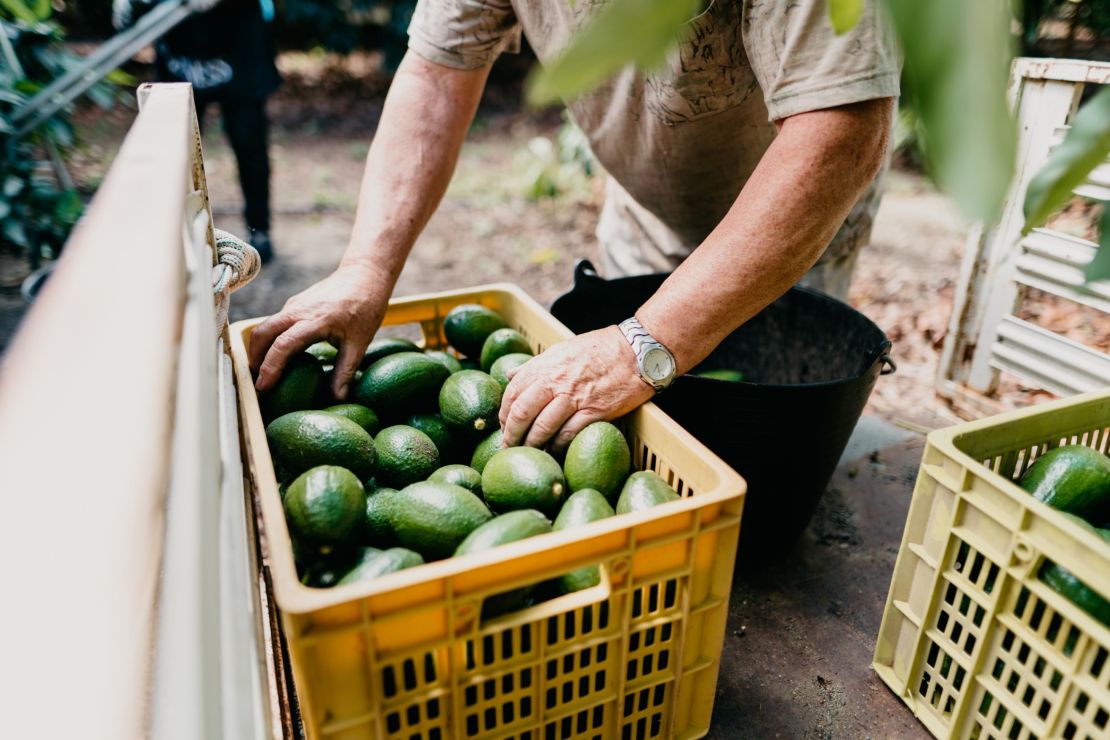
Rather than omitting imported fruits and vegetables entirely, Martindale believes moderation is a step in the right direction. Shokouhi’s Ecovado shows “incredible creativity,” he says but he questions if the product can scale to become a viable alternative to avocado imports.
Since graduating, Shokouhi’s product has had interest from potential investors, she says. While she’s still perfecting the Ecovado, she hopes it will eventually be sold in in supermarkets for a similar price to real avocados. Shokouhi has also experimented with Japanese edamame beans and is intrigued by the idea of producing Ecovado in other countries using different local ingredients in the future.
She hopes skeptics will give the Evocado a chance.
“The taste maybe is not 100% exactly like avocado,” Shokouhi says, “but that doesn’t matter as an alternative as long as you can have it on your sourdough, and it tastes good and it looks the same and it’s healthy.”


